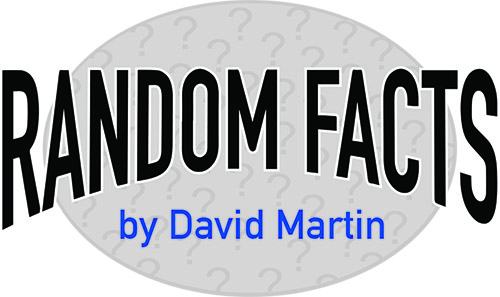By David L. Martin —
When we opened our internet tubes this week, lots of things about salt came out. Although only a small amount of salt (500 mg or about a quarter of a teaspoon) is needed for life, that salt is critically necessary for muscles (including your heart) to work, for nerve impulses to be transmitted, and for fluid levels to be regulated. Medical guidelines suggest that your salt intake be kept to around 1,500 mg or about three-quarters of a teaspoon daily. American adults, however, are consuming about 3,400 mg daily (about one-and-a-half teaspoons), most of it from prepared food.
Primitive humans were hunters who ate meat and meat is a rich source of salt. But when agriculture became widespread, human civilizations developed an enormous demand for salt, which was hard to come by in ancient times. Deposits of salt deep underground, where we get most of our salt today, were beyond the mining capabilities of early human societies. People had to rely on using crude methods to evaporate seawater or on collecting salt from deposits found on or near the surface of the Earth — and those deposits were rare and jealously guarded.
In addition to salt being necessary for life and delightful for flavoring food, ancient people used salt to preserve meats and treat wounds. With demand vast and supplies restricted, salt became one of the most valuable commodities humans traded. In the 6th century, the Moors would exchange an ounce of salt for an ounce of gold. In other areas cakes or blocks of salt were used as currency. Wars were fought and global trade routes were established over salt. Our languages are peppered (salted?) with words and phrases based on salt. “Salary” comes from the Latin “salarium,” which was the payment to Roman soldiers so they could buy salt or sometimes the payment was the salt itself. Not being worth your salt means you’re not measuring up.
Taking something with a grain of salt (in some societies it’s with a pinch of salt) means to be skeptical and might have come from Pliny the Elder in 77 A.D. recommending that antidotes to poison be taken with a grain of salt to make them more effective.
Adding salt to your wound means making something worse and that came from the fact that salt was used to disinfect wounds but hurt like the dickens when it was applied.
Saying “back to the salt mines” to indicate returning to the drudgery of work comes from the Russian practice of sending prisoners to work in Siberian salt mines. But maybe working the salt mines isn’t such a bad thing. Hundreds of years ago, it was noticed that salt mine workers in Eastern Europe were healthier than the general population, seldom getting colds or developing pneumonia, asthma, or other lung ailments. People began visiting salt mines as therapy. Today, you can take halotherapy, which is using salt-infused air to treat lung ailments. Salt particles in the air are anti-inflammatory and antibacterial.
So if you think you’re catching a cold — back to the salt mines with you!



